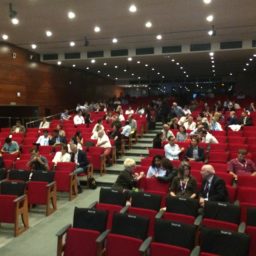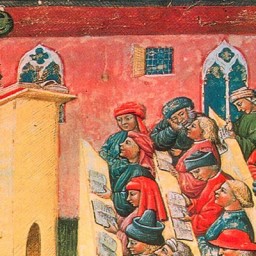
Chicken chicken chicken | Doug Zongker It so often takes humor to expose the ridiculous as in this wonderful short lecture from Doug Zongker. It is worth watching to the end for the Q&A. Why are so many lectures at conferences death by powerpoint? Or should I ask chicken chicken chicken? Chicken chicken chick chick chicken? … Continue reading Chicken, Chicken, Chicken Doug Zongker, February 2007

Gurteen Knowledge Blog December 15, 2022, 12:16Since I developed the concept of the Knowledge Café and started running it 20 years ago in 2002, a few academics have picked up on the idea and used it for teaching, learning, and sharing knowledge among students and lecturers alike. It has also been used in research. These experiments … Continue reading Academic Papers on the Knowledge Café Using the Knowledge Café in academia

Eric Mazur is a Harvard physicist and educator who developed a teaching method called Peer Instruction. Peer Instruction involves students learning from each other during class. It begins with a concept-based question that challenges students’ understanding. After individually answering the question, students discuss their responses with their peers. This collaborative discussion helps them clarify their … Continue reading Peer Instruction Where students learn from each other

In most talks or seminars, there is no opportunity for the audience to discuss the presentation. This doesn’t have to be the case. Allotting a few minutes during the Q&A session for conversation can facilitate this. Conferences far too often rely heavily on standard lecture-style talks where presenters speak and attendees passively listen. However, integrating … Continue reading Conversational Talks How to give a conversational talk or presentation

The purpose of this paper is to describe the application of a Knowledge Café as an academic research technique. Abstract The purpose of this paper is to describe the application of a Knowledge Café as an academic research technique. Knowledge Cafés are a tool for sharing knowledge among those individuals who participate in the conversations … Continue reading The Knowledge Café as a Research Technique Shawren Singh (2017)

Data from various settings suggest that there is an upper limit of about four on the number of individuals who can interact in spontaneous conversation. Abstract Data from various settings suggest that there is an upper limit of about four on the number of individuals who can interact in spontaneous conversation. This limit appears to … Continue reading Size and Structure of Freely Forming Conversational Groups Robin Dunbar, N. D. C. Duncan and D. Nettle (1995)

Flipped teaching reverses, or “flips”, traditional in-class lectures and homework. Students watch the teacher’s prerecorded lecture at home, and in-class time is used for students to test their skills, apply their knowledge, and interact through hands-on projects, discussions, and exercises. Traditional lectures such as the one below can be sleep-inducing or worse: Boring Economics teacher … Continue reading Flipped Teaching Speech is a bad medium for communicating information – so watch lectures at home

In education, considerable emphasis is placed on numeracy and literacy — understanding and working with numbers and reading and writing. But what about the capacity to listen and to speak? Why is so little importance attached to oracy? Is the ability to hold a good conversation as important as being able to read well? “Is … Continue reading Oracy The ability to express oneself in and understand spoken language







